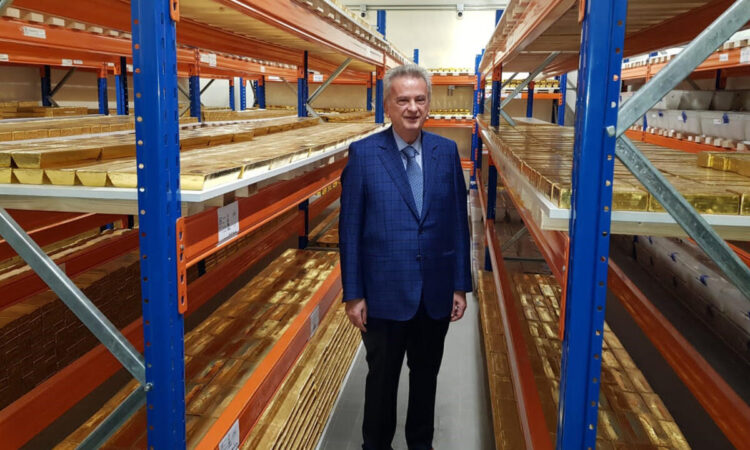
This week, Lebanon’s outgoing Central Bank Governor Riad Salameh appeared in court for the first time to face accusations of embezzling hundreds of millions of dollars in public funds during his three-decade tenure at the front of the Banque du Liban (BDL).
Salameh, 72, is being investigated alongside his brother Raja in Lebanon and at least five European countries for corruption and money laundering.
After over a year of evading arrest warrants, Salameh was interrogated by a Lebanese judge relaying nearly 200 questions submitted by European officials on Thursday and Friday.
Salameh issued a statement after leaving the justice palace saying he had presented documents that proved no money had been transferred to his account from the central bank’s funds and that any money transferred to offshore accounts came from his funds.
“The transfers I made abroad, whatever the amount, were from my personal account,” he said before once again claiming to be the victim of political persecution.
Salameh’s questioning came just days after the Lebanese lira shed nearly 100 percent of its value as Lebanon’s economic crisis continues to spiral out of control.
European prosecutors who attended the hearings — representing France, Germany, and Luxembourg — left Beirut on 18 March. They are expected to return on 15 April to question Salameh’s brother Raja and former assistant Marianne Hoayek, as well as the heads of several commercial banks.
European officials suspect Salameh and his brother illegally appropriated $330 million from the central bank between 2002 and 2015 and were involved in money laundering in Switzerland through Forry Associates, a company registered in the Virgin Islands whose owner is Raja Salameh.
Under a brokerage contract signed in 2002, commercial banks paid commissions to Forry when they bought certificates of deposit from the Lebanese central bank. While central banks are known to use intermediaries to sell financial products, the total opacity of Forry’s contract raised serious suspicions as the exact services provided by the firm have never been made clear.
Swiss prosecutors say they discovered that most of the commissions were transferred to Raja Salameh’s account in Switzerland and were later wired to his accounts in five Lebanese banks.
Last month, the Swiss daily SonntagsZeitung reported that at least $500 million in stolen Lebanese public funds are being held in Swiss bank accounts linked to the Salameh brothers.
Documents obtained by Lebanese daily Al-Akhbar in August showed that Salameh’s embezzlement scheme involved the use of real estate properties in France.
The scheme centered on using the money of Lebanese citizens to pay exorbitant rent for luxury apartments owned by Salameh ad his close relatives in Paris, and to secure monthly stipends of 30,000 euros for Salameh’s girlfriend and daughter.
In March last year, Salameh was charged with illicit enrichment by Lebanese Judge Ghada Aoun in relation to an apartment in Paris that the Central Bank leased as a “reserve center” in the event that the bank would no longer be able to operate from its headquarters in Beirut.
A raid on the apartment by French police in 2021 revealed that the Central Bank had rented it for $500,000 a year.
According to an investigation by The Cradle columnist Lea Azzi, since 1997, Salameh has personally taken all the measures and made all the decisions that led to Lebanon’s economic collapse.
These include executing financial engineering that doubled the profits of bank owners and increased the state’s debt; concealing the losses of the banking sector; applying subsidies to imports of fuel, medicine, and wheat, and then raising prices before finding an alternative for citizens; and finally, of participating in currency market speculation which contributed to the collapse of the Lebanese lira, wiping out the life savings of millions.






